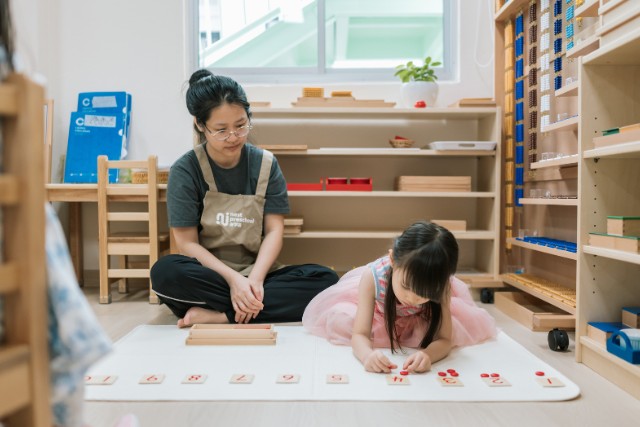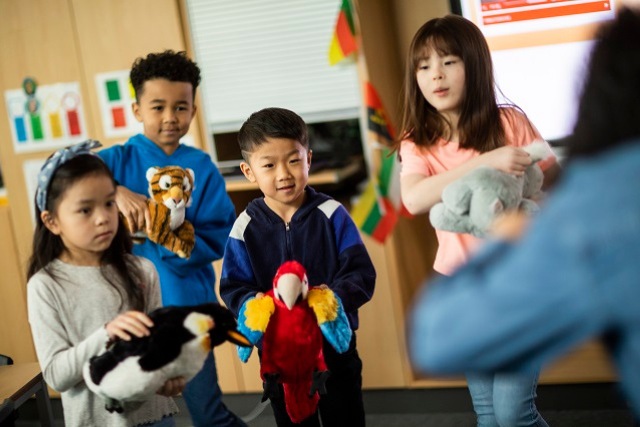You may nag, you may send your children to never-ending tuition classes, you may reward or punish, you may buy tons of assessment books and yet, deep down in your heart you know that unless your kids are willing to learn, they will never be happy to study and they may never really absorb whatever knowledge you or the teachers are sharing with them.
⇒ Related Read: Why Buying More Assessment Books May Not Be Helpful For Your Child

Ultimately, it is the importance of the motivation and self-determination of our kids that will result in them making conscious choices for their academics.
Instead of nagging at your kid or signing them up for another tuition, why not find ways to empower them to be the master of their own learning journey?
Here are 3 ways that can help your child take charge of their learning.
#1 Give the Freedom to Choose

Many times we jump into making decisions for our children because we, based on our age and experiences, believe that we have better judgment. It is not necessarily what our children agree with and by overdoing this, we have unconsciously snatched away the freedom our children have to make decisions and learn through mistakes.
Take for example, before signing your child up for swim, dance, art, tennis and badminton classes, try asking them for their interest and what they are most interested to learn.
You are no longer forcing them to pick up skills but rather, honouring and giving them the opportunity to learn what they like. You’ll see the change of attitude for this.
#2. The Best Way to Learn is Through Sharing

Do you remember coming across an interesting article on social media and you would share it with your friends? We learn and we share.
That applies to our children too. Are we giving our children enough opportunities to help others understand the concepts they have learned in school?
Social learning can take place through mobile devices with Apps that promote the sharing of knowledge.
On platforms like AsknTeach, students are empowered to share their knowledge with their peers on different subjects by revising their notes, conceptualising and explaining it to their “tutees”.
Learning goes both ways and it is no longer bounded by the classroom walls, but rather, they are empowered to ask questions and learn from their peers anytime, anywhere with the availability of such platforms.
#3 Help Improve Their Self-awareness

More often than not, children may not have the foresight of what’s the best for them with limited experience in life but what they do know for sure, is what they like and dislike.
Instead of forcing our beliefs and opinions on them, we could perhaps ask them questions that will guide and help uncover their motivations behind learning.
Achieving this form of self-awareness at a young age will propel them towards achieving self-actualisation earlier on in life.
It’s true that we want the best for our kids. Sometimes, we may have unknowingly overstepped in their paths of learning that result in stress, depression, low self-esteem and hatred for learning.
⇒ Related Read: Boosting Self-Esteem in Children
Let today be the day we start believing that children are not things to be moulded but are people to be unfolded.
This article was contributed by AsknTeach.
* * * * *
Looking to reach over 100,000 parents in Singapore? Let us amplify your message! Drop your contact details here, and we’ll reach out to you.
Discover exciting family-friendly events and places to explore! Join our Telegram channel for curated parenting recommendations.

























































